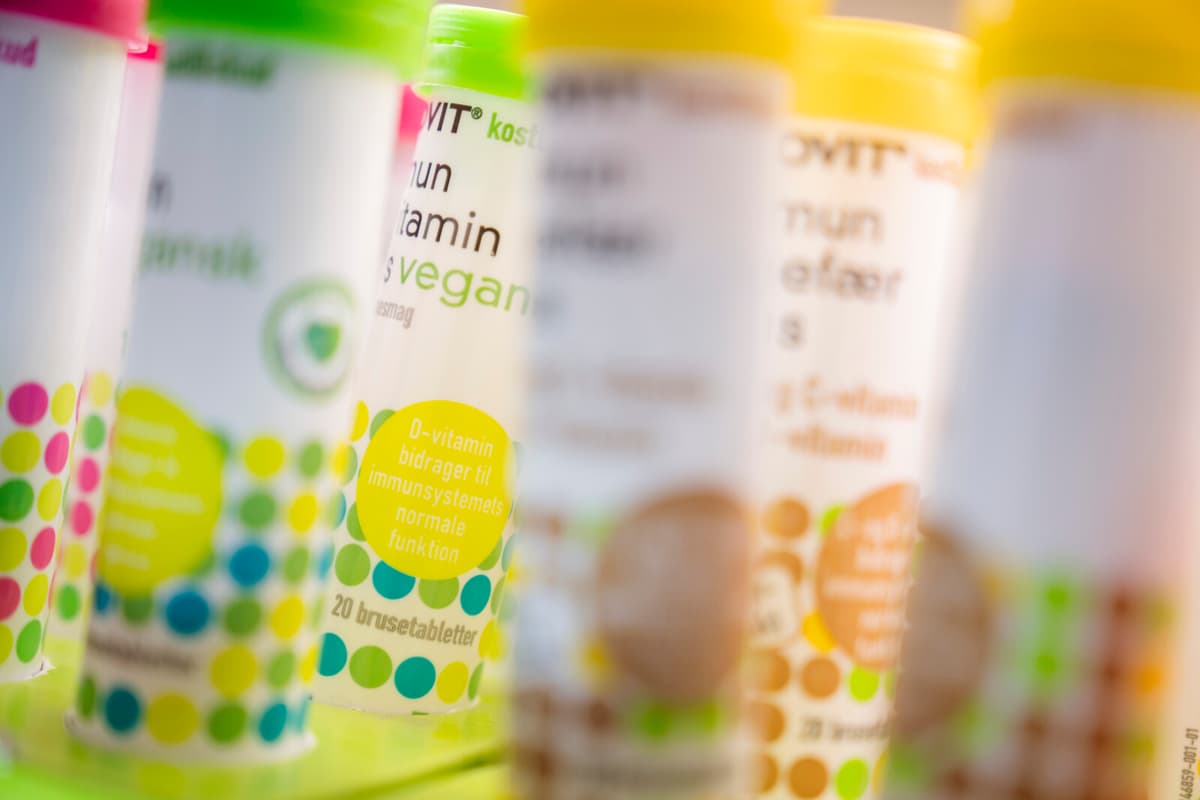In 2023, Swedes purchased dietary supplements and vitamins for nearly 3.6 billion kronor, according to figures from the industry organization Svensk Egenvård.
At Apoteket alone, there has been a 15% increase in the sale of dietary supplements since 2022.
I believe it reflects an increased interest in society for health and self-care, says Åsa Knutsson, quality manager for self-care at Apoteket AB.
Too Much
In marketing, arguments are presented that products can provide more energy, better sleep, softer skin, or fewer menopausal symptoms. But how much do we really need?
Generally, we buy too many dietary supplements for too much money, says Ingrid Larsson, a nutrition physiologist at Sahlgrenska University Hospital and associate professor at Sahlgrenska Academy.
According to her, most people do just fine without any extra supplements. We get what we need through food.
To take supplements, one should, according to her, primarily have a confirmed deficiency. An example is women of childbearing age with heavy menstruation who may need extra iron. Other cases are certain diseases that limit appetite or specific diets that exclude several food groups, such as a vegan diet.
If there is suspicion of a deficiency, it is important to be investigated by healthcare and receive supplements. Otherwise, one may risk masking a serious disease by taking supplements on one's own initiative, says Ingrid Larsson.
Unclear Magnesium Frenzy
One of the supplements that has become popular is magnesium. The mineral claims to reduce fatigue and muscle cramps in the legs. The magnesium frenzy has surprised Ingrid Larsson.
There is no scientific evidence that we need extra magnesium, nor that it helps with muscle cramps in the legs. Magnesium is also found in small amounts in food, including bread, legumes, meat, and fish, so the risk of deficiency is low.
A vitamin that increases in sales during the winter months is vitamin D. It is formed in the skin when exposed to sunlight and is found in certain types of food. The National Food Agency recommends that certain groups take vitamin D supplements, such as children under 2 years old and people over 75 years old.
The Sun is Not Enough
However, between October 1 and March 30, the sun's radiation at our latitudes is not sufficient for the body to produce vitamin D.
Then we all need to get it through food or supplements, says Ingrid Larsson.
Åsa Knutsson at Apoteket believes that most people know that a balanced diet gives us what we need, but thinks that many find it difficult to get enough.
Maybe you don't eat 500 grams of fruit and vegetables a day and fish two to three times a week. Then supplements can be good, she says.
Corrected: An earlier version stated an incorrect figure for the sale of dietary supplements.
The National Food Agency's recommendations for who needs extra vitamins and minerals:
Vitamin D: All children up to two years old, children and adults who do not eat fish and vitamin D-enriched foods, children and adults who wear clothing that covers their face, arms, and legs or do not go out in the sun during the summer, and all elderly over 75 years old.
Folic acid: Women who may become pregnant.
Vitamin B12: Vegans who exclude all animal products.
Source: National Food Agency






